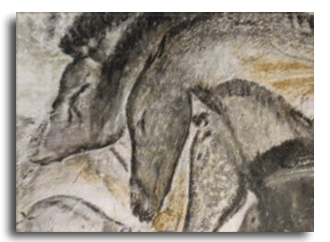
|
CS576: Computer Vision
Spring 2019
|
Instructor |
Min H. Kim, [Room] 3429, [email] |
Course description
|
This course provides advanced topics to computer vision, including the foundations and applications of camera image formation, geometric optics, feature detection, stereo matching, motion estimation, image recognition, scene understanding, etc. This course will help students develop intuitions and mathematics of various advanced computer vision applications. |
Lecture time and place |
Monday and Wednesday 1:00PM—2:30PM, Rm. 117, Bldg. N-1 |
TA office hours |
(Suk Jun Jeon, Hyeonjoong Jang) Tuesday and Thursday 2:30PM—5:30PM, Rm. 2443, Bldg. E3-1
(Inseung Hwang) Thursday 2:30PM—5:30PM, Rm. 2443, Bldg. E3-1
|
Teaching assistants |
Suk Jun Jeon, [e-mail]
Hyunho Ha, [e-mail]
Hyeonjoong Jang, [e-mail]
Shinyoung Yi, [e-mail]
Inseung Hwang, [e-mail]
|
Textbook |
Richard Szeliski (2010) Computer Vision: Algorithms and Applications, Springer [site] |
References |
Christopher M. Bishop (2006) Pattern Recognition and Machine Learning, Springer [site]
Ian Goodfellow, Yoshua Bengio, Aaron Courville (2016) Deep Learning, MIT Press [site]
Gary Bradski, Adrian Kaehler (2016) Learning OpenCV 3, O'Reilly Media [site] |
Prerequisites |
There are no official course prerequisites. |
Course goal |
Student will establish theoretical and practical foundations of computer vision and be familiar with various computer vision applications. |
Tentative schedule |
|
| |
Index |
Date |
Lecture |
Readings |
Slides |
HW |
Due |
| |
1 |
2/25 |
Introduction to computer vision |
chapter 1 |
| |
|
| |
2 |
2/27 |
Image formation and camera |
chapter 2 |
|
| |
| |
3 |
3/4 |
Epipolar geometry |
chapter 11 |
|
|
|
| |
4 |
3/6 |
Camera calibration |
chapters 6 and 11 |
|
| |
| |
5 |
3/11 |
Stereo matching |
chapters 6 and 11 |
|
|
|
| |
6 |
3/13 |
Structure from motion |
chapters 7 |
|
|
|
| |
7 |
3/18 | Thin lens and optics |
chapters 2 and 10 |
|
|
|
| |
8 |
3/20 | Light-field imaging |
chapter 13 |
|
|
|
| |
9 |
3/25 | High dynamic range (HDR) imaging |
chapter 10 |
|
|
|
| |
10 |
3/27 | High dynamic range (HDR) rendering |
chapter 10 |
|
|
|
| |
11 |
4/1 |
Light |
chapter 2 |
|
|
|
| |
12 |
4/3 |
Color |
chapter 2 |
|
|
|
| |
13 |
4/8 | Frequency domain |
chapters 3 and 8 |
|
|
|
| |
14 |
4/10 | Hyperspectral imaging |
chapters 2, 4 and 10 |
|
|
|
| |
|
4/15 | Mid-term exam |
|
|
|
|
| |
15 |
4/22 | Machine learning for computer vision |
chapters 3, 4 and 5 |
|
|
|
| |
16 |
4/24 |
Dimension reduction |
chapters 3, 4 and 5 |
|
|
|
| |
17 |
4/29 |
Linear regression |
chapters 3, 4 and 5 |
|
| |
| |
18 |
5/1 |
Classification (1) |
chapters 3, 4 and 5 |
|
|
|
| |
19 |
5/8 |
Classification (2) |
chapters 3, 4 and 5 |
|
|
|
| |
20 |
5/13 |
Clustering |
chapters 5 |
|
| |
| |
21 |
5/15 |
Recognition (1) |
chapter 14 |
|
|
|
| |
22 |
5/27 |
Deep learning & neural networks |
chapter 14 |
|
|
|
| |
23 |
5/29 |
Convolutional neural networks |
chapter 14 |
|
|
|
| |
24 |
6/3 |
Training networks |
chapter 14 |
|
|
|
| |
25 |
6/5 |
Understanding what networks learn |
chapter 14 |
|
|
|
| |
|
6/10 |
Final exam |
|
|
|
|
| |
|
|
|
|
|
|
|
|
|
|
|
Hosted by Visual Computing Laboratory, School of Computing, KAIST.
|
 |
|